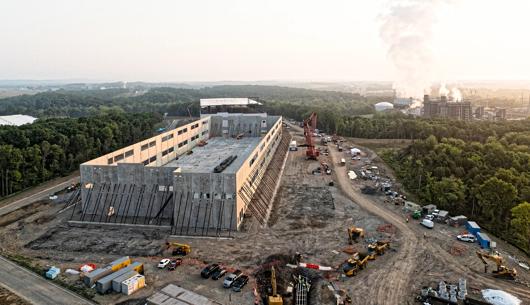Restarting a project with a new contractor
Public sector bodies can find restarting projects particularly challenging given the levels of scrutiny and additional legislation they must often navigate.
This article is taken from July's public matters newsletter. Click here to view more articles from this issue.
Please note: the information contained in this legal update is correct as of the original date of publication
With an uncertain economic outlook in the post-Covid-19 era, the risk of contractors entering insolvency looks set to worsen. Consequently, employers may face the prospect of having to appoint a new contractor to complete existing construction projects. Restarting projects can be difficult for any organisation that finds itself having to appoint and work with a new contractor, but this can be particularly challenging for public sector bodies given the levels of scrutiny and additional legislation they must often navigate.
Concluding the original building contract
Although the original contractor may be insolvent, this does not necessarily mean that the employer does not need to pay for works carried out by the insolvent contractor and the administration of the building contract must continue.
Most building contracts will contain mechanisms which dictate the steps that should be taken when a contractor becomes insolvent. Public bodies will want to ensure that these are followed carefully to avoid incurring any unnecessary liability to the insolvent contractor.
For example, most JCT contracts feature a series of mechanisms that must be followed to administer the building contract to the completion of the contract. This includes the opportunity to issue a notice terminating the contractor’s employment under the contract and a final account process. This mechanism determines how much should be paid to the insolvent contractor once the works are completed and the defect rectification period has been concluded by calculating the amount that would have been paid to the contractor less the amount of payments already made and the expenses properly incurred by the public body completing the works. If the result of this calculation is that the contractor owes the public body money, it may seek to recover these sums in the insolvency process.
You should carefully check the provisions of your contract and any schedule of amendments and seek specialist legal advice if necessary.
Employing a new contractor
The public body should ensure that it complies with all relevant legislation, including the Public Contracts Regulations 2015, when appointing the new contractor.
This will mean in some cases that a new tender process is required when there is a change of contractor, although some exemptions may apply. The public body should consider whether any of the available exemptions apply or if the remainder of the works can be procured under an existing framework agreement in compliance with procurement rules.
The terms of the new building contract
Unless the new contractor is willing to enter into a contract on the same terms as the old contract, all the usual considerations and risk apportionment should be taken into account. However, the public body may want to pay particular attention to obligations relating to design, cost and time.
Design
It is highly unlikely that a new contractor will accept responsibility for design or works that have been already been carried out by the previous contractor. The contract entered into with the new contractor will need to address the extent of the new contractor’s responsibility for designing and carrying out the works.
Price
Any increase in costs is particularly important for public bodies given the need to work to budgets and their public accountability. Careful consideration should therefore be given to the prices quoted by potential contractors, the potential for that price to increase and the costs that could be paid to or recovered from the original contractor.
Time
Any change in timescales could have significant consequences as public bodies rely upon the completion of construction projects to provide services to the public. For example, the refurbishment of a school, if carried out during school holidays, would have to be completed on time for its re-opening or significant costs could be incurred finding suitable alternative accommodation for students. Similarly, a new hospital building may be required to begin providing care to patients.
Project specific considerations
The public body should consider the specific project and whether there are any specialist requirements for the project. Using the example of the school refurbishment that needs to be completed, you may want to consider whether any safeguarding provisions are suitable given the limited time frame with which the contractor’s employees may be checked in line with DBS procedures. If school examinations are due to take place during the course of the works, consideration should be given to terms preventing noisy works during certain times.
Sub-contractors and supply chains
Where sub-contractors have been involved with the previous contractor, these could be novated to the new contractor – provided that this can be agreed. Alternatively, new subcontracts could be entered into with the new contractor. Public bodies may want to contact any sub-contractor who have outstanding works on the project to facilitate these discussions. Where new subcontracts have been entered into, sub-contractors may need to provide new collateral warranties.
If the project is suitably advanced and the works are all sub-contracted, the public body may consider exercising any step-in rights it has to engage the sub-contractors directly to complete the works.
Public bodies should seek to contact any key suppliers that are required to complete the works and determine what their position is. The public body may consider entering into a contract with the supplier directly or facilitating an agreement between the new contractor and the supplier.
Conclusion
Appointing a new contractor for existing projects will require the consideration of new legal and commercial risks. However, if local authorities consider the above issues and plan for them in advance, they will be best placed to mitigate any difficulties in the future.
Contact

Mark Hickson
Head of Business Development
onlineteaminbox@brownejacobson.com
+44 (0)370 270 6000







































